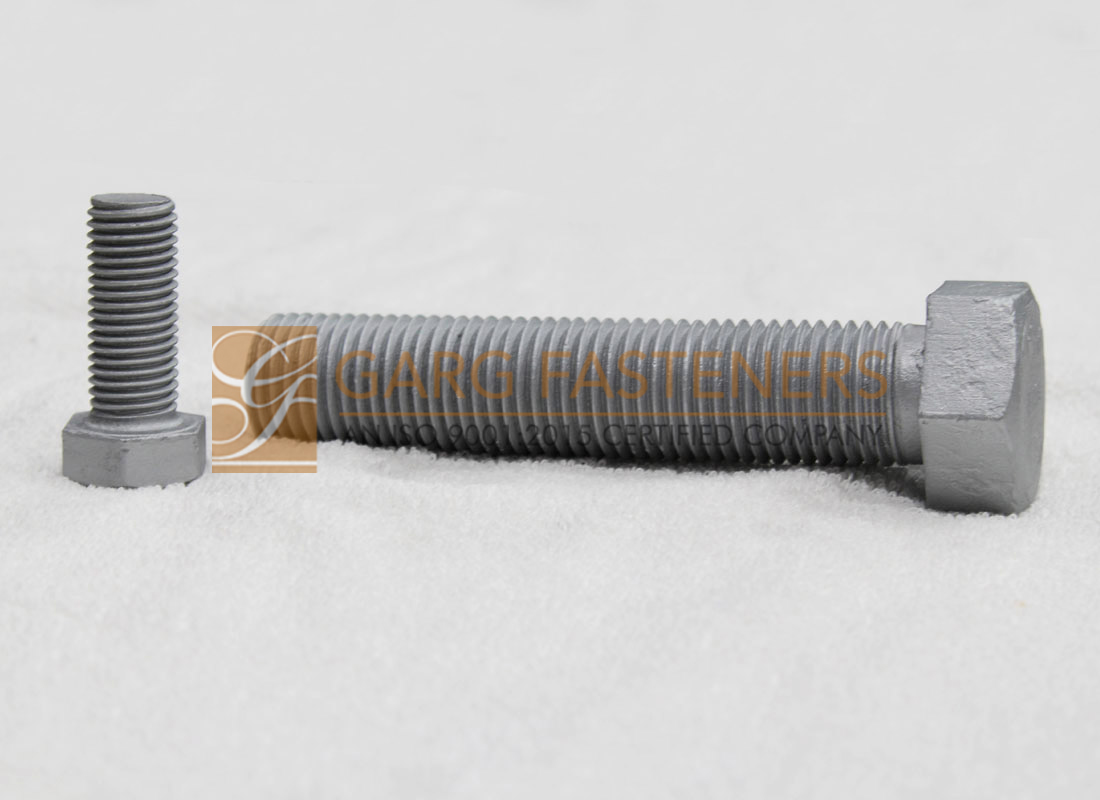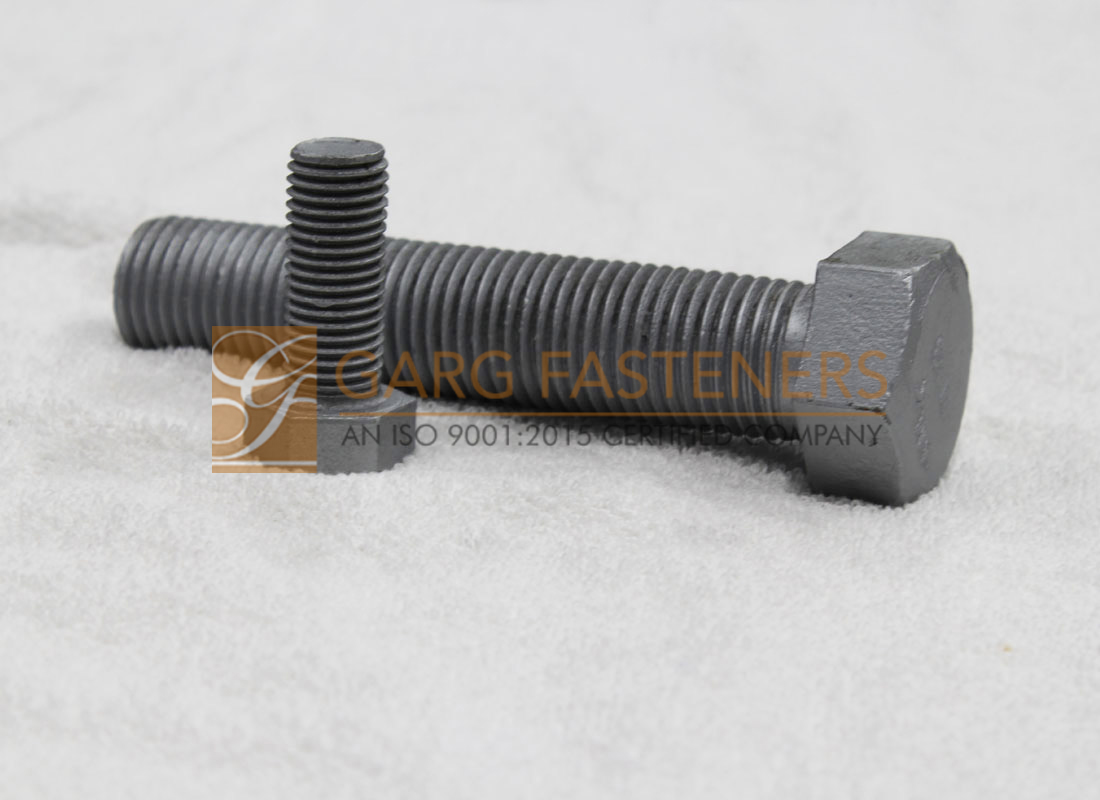Full Thread Bolts
Full Thread Bolts
As you might have guessed, fully threaded bolts and screws have no grip length or thread-free portion. The threads run from under the head to the tip.
Why choose a fully threaded bolt? If you’re most interested in grip strength and less interested in alignment and shear strength, a fully threaded bolt is going to be your best option. Once mounted, a full thread bolt spreads pressure along its entire length, with the largest holding pressure placed on the head where it meets the material it fastens to.
Often used in the automobile industry to design vehicle frames, full thread solutions distribute the mounting pressure of a car’s panels across the length of the entire bolt thanks to the full threading. Where grip strength is more critical compared to alignment or shear strength, full threads are your go-to.
Application : Full thread bolts are for applications that require more grip strength. These can also be used within the automotive industry in parts such as body panels, which do not require the same level of holding force that motor mounts need.
Types : Generally, there are two thread series, namely The ISO Metric Screw Thread (in millimetres) and The Unified Screw Thread (in inches). For both these series, there are two types of threads – fine thread and coarse thread.
Size :
| Bolt Diameter (mm) | Standard Thread Length (mm) * | |
| Bolts 125mm and shorter | Bolts longer than 125mm | |
| 12 | 30 | 36 |
| 14 | 34 | 40 |
| 16 | 38 | 44 |
Specification : Bolts manufactured to the ASTM A325 specification have a fixed thread length for a given diameter, which is often shorter than other grades of bolts. For example, a 3/4″ diameter A325 has 1-3/8″ of thread and a 1″ A325 has 1-3/4″ of thread, regardless of the overall length of the bolt. Our structural bolts product page contains a table of thread lengths for each available diameter.
Finishing : Alloy steel, aluminum, brass, silicon bronze, and stainless steel are just some of the materials that fasteners are manufactured in. The combination of material, treatment, hardening, and coating (aka plating) are essential to determining the strength and appropriate application for each fastener.
Grade : Grade 8.8


